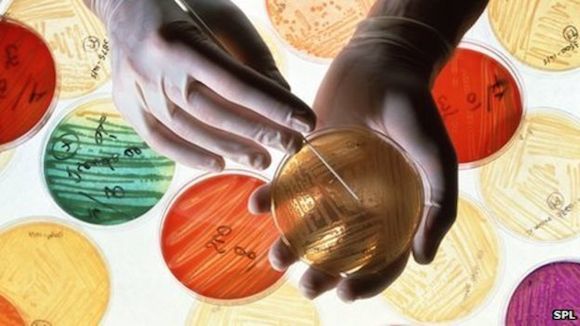Dr. Arvind Dhople: International Meeting Addresses Antibiotic Resistance
By Arvind M. Dhople, Ph.D., Professor Emeritus, Florida Tech // May 26, 2016
Action plan calls for immediate reduction of antibiotic use in humans and animals globally

EDITOR’S NOTE: Resistance to antibiotics amongst organisms causing infections is now a global emergency.
Since the 1940s, antibiotics and similar drugs, together called antimicrobial agents, have been used to treat patients with infections, and have greatly reduced illness and death from infectious diseases. When prescribed and taken appropriately, the value of antimicrobial agents to combating complications and death from infections is prodigious. However, these drugs have been used so widely for so long, and often times inappropriately, that the infectious organisms the antibiotics are designed to kill have adapted to them and become resistant, making the drugs less effective.

We are delighted to once again welcome Arvind M. Dhople, Ph.D., Professor Emeritus, Florida Tech as a guest columnist to report on a recent highly-anticipated international meeting hosted by Great Britain’s Royal Society of Medicine (RSM) Pathology Section that addressed integrative approaches to dealing with the critical problem of antibacterial resistance.
With antimicrobial drug resistance occurring everywhere in the world and not limited to industrialized nations, Dr. Dhople strongly supports the immediate action to more aggressively and comprehensively address this crisis as endorsed by the experts presenting at the the RSM meeting.
— Dr. Jim Palermo, Editor-in-Chief

BREVARD COUNTY • MELBOURNE, FLORIDA – On May 12, 2016, at a meeting of the Royal Society of Medicine in London, representatives from over 20 countries considered the immediate actions different nations can take to address the urgent, cross-border problem of antibiotic resistance.
World-leading scientists discussed a new action plan to reduce the overuse and misuse of antibiotics, which has led to bacteria responsible for common infections developing resistance to the drugs which are meant to destroy them.

These “Superbugs” are estimated to cause 700,000 deaths every year. If the current situation is left to continue, it is estimated that by 2050 the world will face an additional 10 million deaths due to drug resistant infections.
Comprehensive study of the issue concluded that the problem of resistance is caused not just by misuse of antibiotics in human healthcare, but also by food producers.
Because of the complexity and multifactorial aspects of rapidly progressive global antibiotic resistance, it was strongly recommended that the action plan generated by this meeting should be taken into consideration at the UN General Assembly meeting on drug resistant infections scheduled for September of this year.
The three proposals for immediate action were:
- Reduce antibiotic use in agriculture, without compromising the food system’s capacity to meet increasing global demand,
- Develop better local understanding of antibiotic use and resistance levels, in human and animal medicine, and
- Optimize antibiotic use in public health and food production systems
The meeting fully agreed that drug resistant infections do not recognize boundaries, either between people and animals or between countries, and so their response must also transcend the usual divisions that separate healthcare and farming, and national governments.

Based on the fact that people are dying today all over the world because infections they were once able to treat are now beating the best antibiotics they have available, the problem is not something that can be put off any longer.
Countries around the world must act now to safeguard both the lives of their citizens and the livestock people rely on for food and income.
Simple measures can have a big impact. For example, reducing the massive overuse of antibiotics can be tackled by phasing out the use of antibiotics for growth promotion in agriculture and minimizing over-the-counter access to antibiotics.
ABOUT THE AUTHOR
Dr. Arvind Dhople graduated from the University of Bombay and then joined Johns Hopkins University School of Public Health, first as a post- doctoral fellow and then Asst. Professor. In 1980, he joined Florida Tech as a Professor and Director of their Infectious Diseases Lab. His specialty is microbial biochemistry and he performed research in leprosy and tuberculosis. He is a Fellow in the American Academy of Microbiology and has published nearly 150 articles in peer-reviewed journals. He has also served as an advisor to the World Health Organization, National Institutes of Health, German Leprosy Relief Association, and the Bill and Melinda Gates Foundation. Currently, he is Professor Emeritus at Florida Tech and a free-lance writer.














